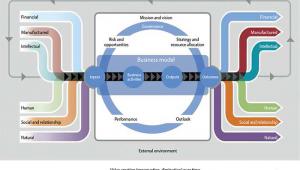18 March 2011
The developing world could be the engine that helps pull advanced economies out of recession, the CIPFA international conference was told this week.
Otaviano Canuto, vice president of the World Bank in charge of the poverty reduction and economic management network, admitted that even five years ago this idea would not have been seriously considered.
‘Advanced economies are slowly recovering from the recession but developing countries are emerging as a major engine of global growth,’ said Canuto.
He said growth rates in developing countries had increased in the past decade relative to those in the developed world.
‘The good news is the relative improvement in the quality of their economic policies in the past decade has paid off [in the recession] and so gives developing countries a strong incentive to maintain good quality policies,’ he said.
Delegates were ‘right to be sceptical’ about these countries’ ability to help the global economic recovery, he added, but pointed out that they enjoyed several advantages.
‘Overall, developing counties have a low degree of private leverage and public balance sheets are in good shape,’ Canuto explained.
‘Most are doing better on their fiscal policies and foreign reserves, and the quality of financial regulation in most is now also leading to a sound banking sector.’
Developing countries also benefited from being latecomers to new technology, because they were able to adapt proven methods rather than start from scratch.
Many countries had also seen growth through ‘the vertical decoupling of production across frontiers’, which allowed them to specialise in parts of processes, Canuto noted.
But he said that for developing countries to thrive, their governments had to enjoy trust at home and abroad, and strong independent financial audit bodies would be needed.
By contrast, he said, most advanced economies were ‘coming out of recession in a bad shape and it does not look like the gross domestic product they lost will recovered soon in the growth phase of the cycle’.
They were burdened by the combined effects of high public and private debt, a credit crunch and crashes in housing and equities, all of which would be slow to reverse, Canuto said.
He concluded: ‘It is important that developing
countries keep on their trajectory so they help to pull the advanced countries
from that quagmire.’
All speakers' presentations from the CIPFA international conference can be watched again on the CIPFA website



















